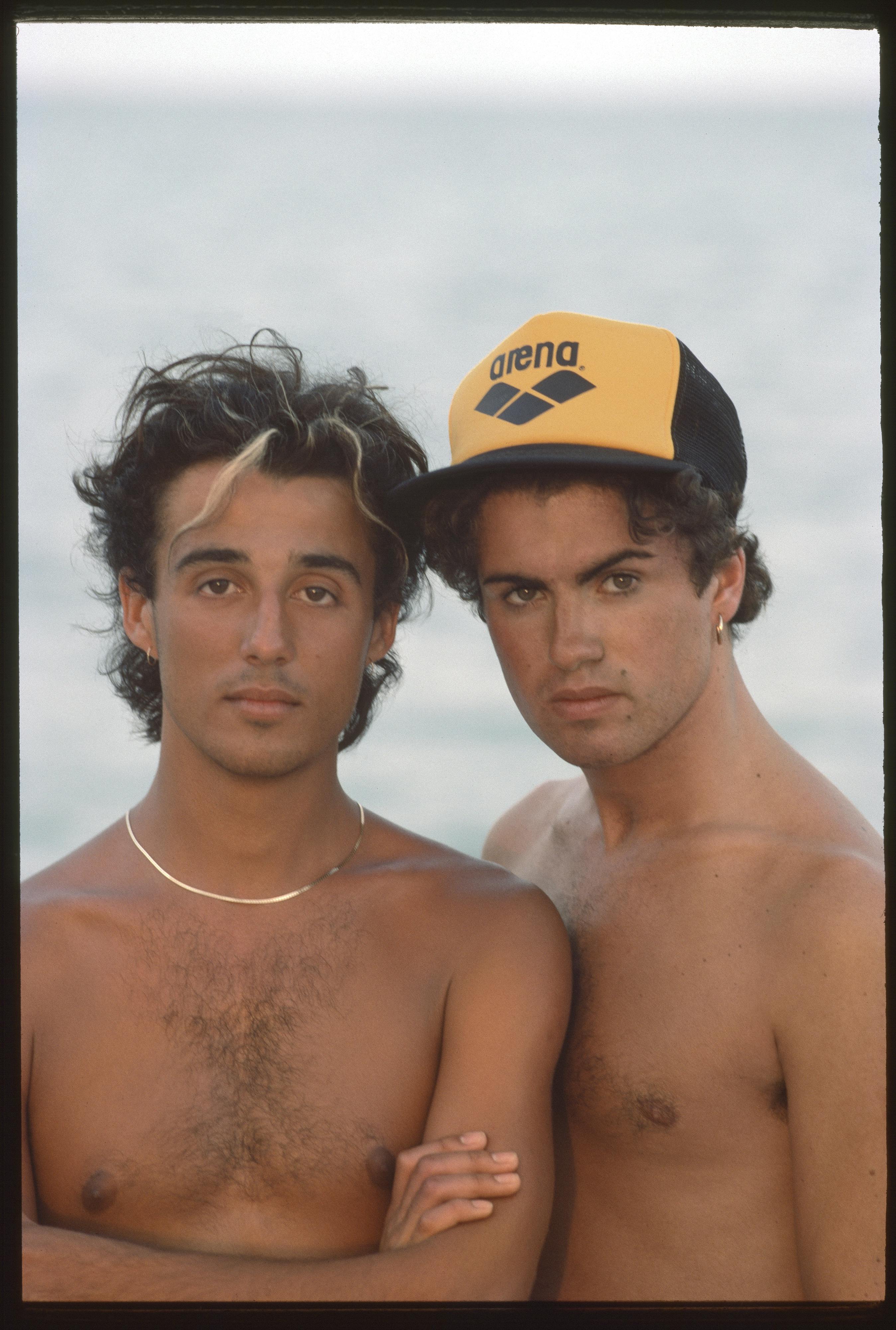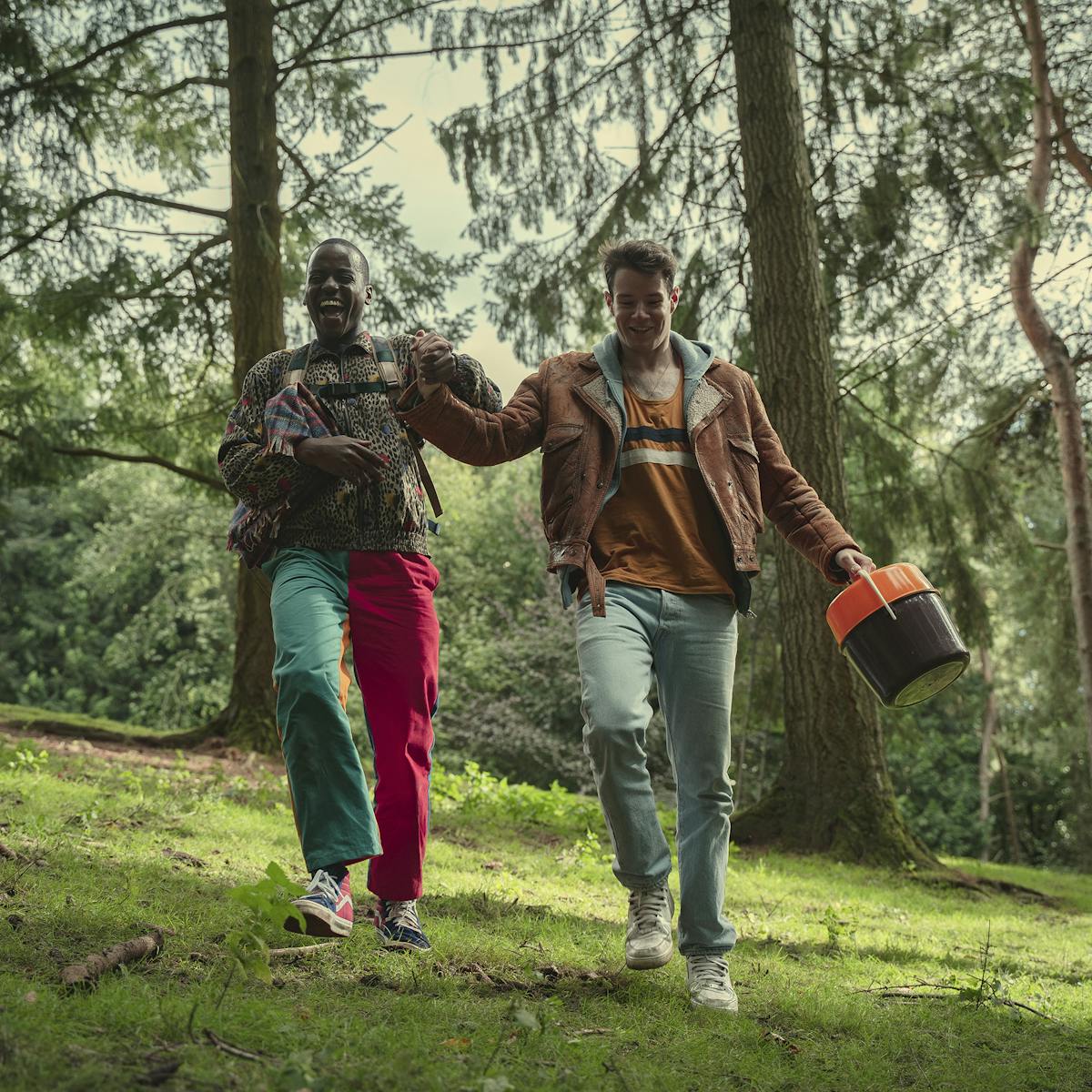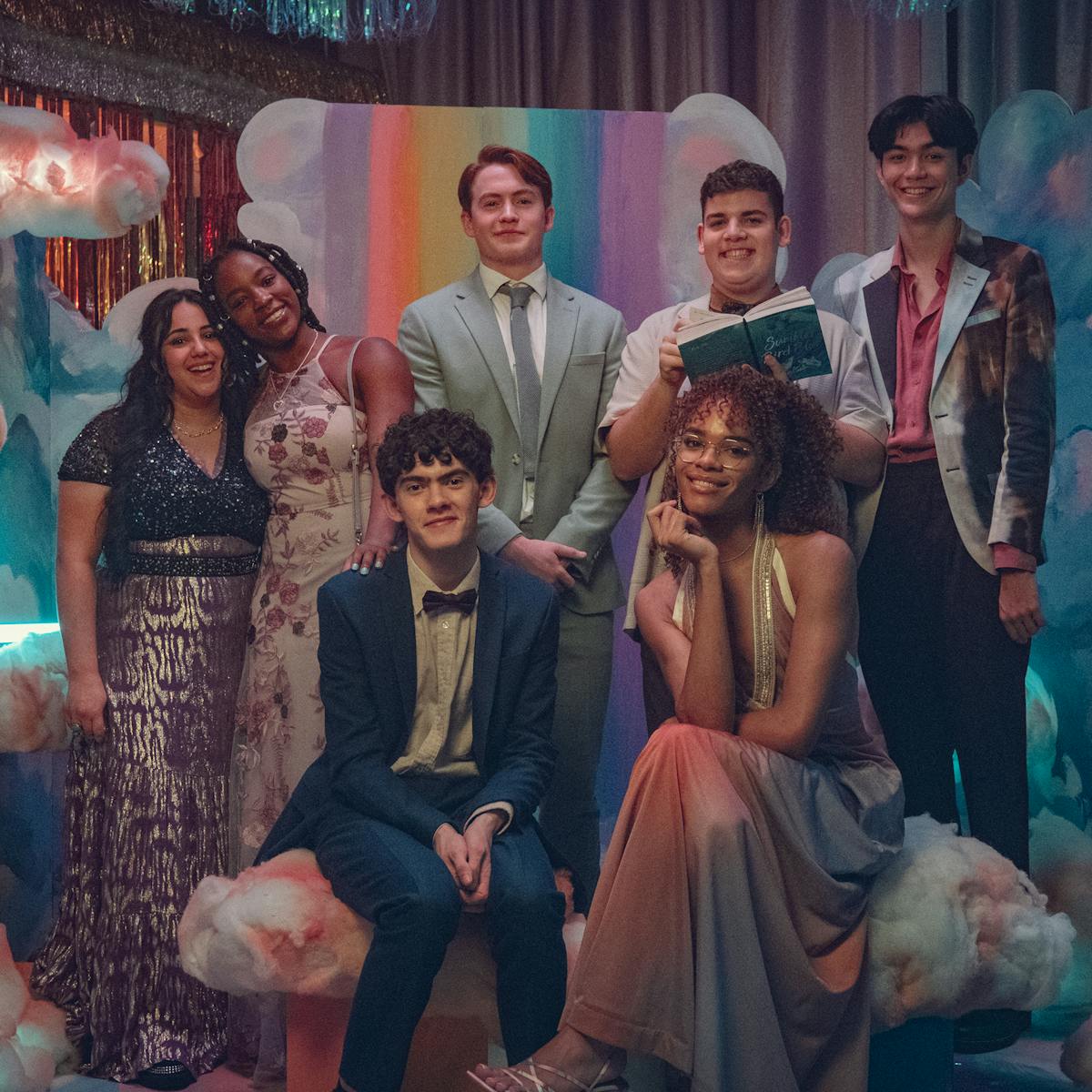Wham!’s rise to fame was rocket-like — a burst of glorious, youthful energy that lasted only four years yet changed the course of pop culture. The musical duo of George Michael and Andrew Ridgeley, two teenagers who met while classmates in the town of Bushey, not far from London, had something special from the get-go, a sound that combined the disaffected humor of working-class youth with an addictive pop sensibility.
It was only about a year from their inception when they earned a recording deal with Innervision — but even that early, home-recorded demo tape they eagerly placed into the hands of record executives contained three songs that would later become huge hits: “Wham Rap! (Enjoy What You Do?),” “Club Tropicana,” and the one that launched Michael to solo artist stardom, “Careless Whisper.” Although Michael concealed his queer identity while a part of Wham!, his lyrics had already begun to explore a sexuality that would fully blossom in songs like “Freedom” and “Father Figure,” which cemented him as a gay icon during the illustrious career that followed.
In WHAM!, director Chris Smith (“Sr.”, Jim & Andy: The Great Beyond) combines archival footage and audio interviews with both Michael (recorded before his death in 2016) and Ridgeley to tell the story of the duo’s early friendship and offer glimpses into their personal struggles with identity and fame, going inside the recording booths for the making of some of their biggest singles.
Here Lori Majewski, radio personality and author of Mad World: An Oral History of New Wave Artists and Songs that Defined the 1980s, discusses the documentary with Smith at the Paris Theater in New York.
An edited version of the conversation follows.
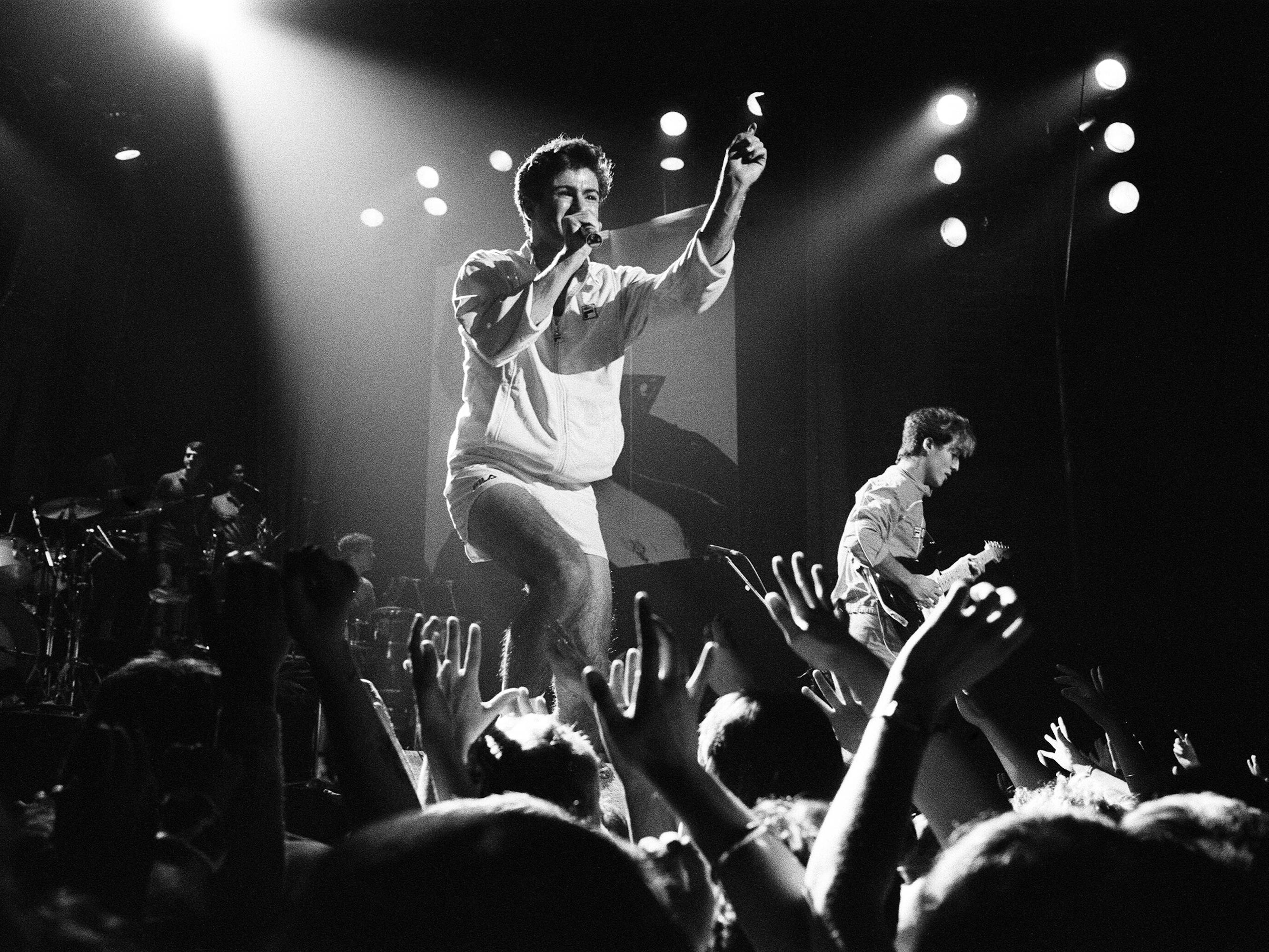
George Michael and Andrew Ridgeley
Photograph by Mike Maloney / Mirrorpix / Getty Images
Lori Majewski: You made Bad Vegan: Fame. Fraud. Fugitives. and Jim & Andy: The Great Beyond. How does WHAM! fit into that? When I read your name attached to this project, I went, “Really?” Are you a secret Wham! fan?
Chris Smith: I remember them; I remember the songs and videos. But I didn’t know anything about the actual band. I knew George Michael, I knew what his trajectory had been after the band. So for me, it was like, if I’m interested in learning more about this, then maybe other people would be as well.
Also, Andrew [Ridgeley] had recently put out this incredible book [Wham! George & Me]. When I read the book, it was very clear to me that there was a great movie there.
There is so much joy in this documentary; it is about friendship. We’ve seen a number of George Michael documentaries already, and this gives a little more shine to Andrew than he usually gets. To be honest, I never heard, until your documentary, that “Careless Whisper” was co-written by Andrew and George. I always thought that was George’s song.
CS: Well, Andrew had the graciousness to allow that to happen. The first three Wham! songs were written by both George and Andrew, but Andrew was okay with George using “Careless Whisper” to launch his solo career.
In making the film, one of the biggest discoveries for me was how accomplished and fully-formed their early demo recordings were. I assumed their demos, which we didn’t have at the beginning, would’ve been these very crude sketches that two high school kids made, and then they recorded with professionals and found their sound. But it was shocking to me how the sound and vision of what Wham! was to become was there from the outset. And it was such a range: It was “Wham Rap!,” “Club Tropicana,” and “Careless Whisper.” Just hearing their talent and wisdom and maturity at that age was shocking to me.
There were so many things that I didn’t know about the band and their journey: that George, by not coming out, sealed Wham!’s fate because he put himself in this box that was unbearable. So it had to end so that he could [openly be himself]. I love the idea that [Wham!] was a four-year period that had a finite window. A lot of people have asked, “Why didn’t you go on and show what happened with George?” I was like, “Well, that seems like a different movie.” This was a movie about Andrew and George and their friendship and how that matures and ages, and there’s something very bittersweet about it. Andrew says it so eloquently in the movie, that Wham! was never going to become middle-aged. And you can’t imagine it. But what was interesting to me is that they definitely have the air of, We’re getting too old for this. Yet, they quit the band when they were 23 years old.
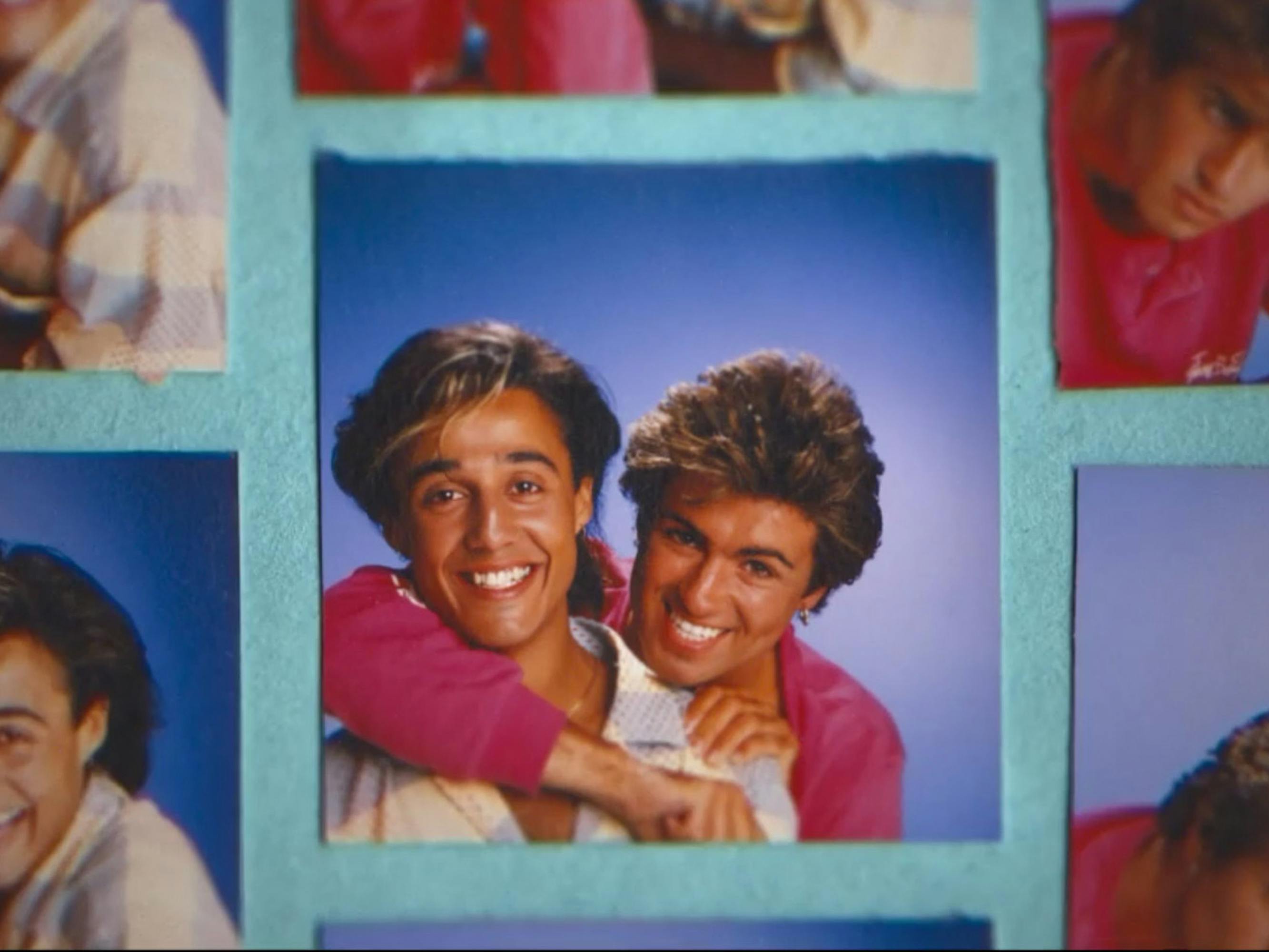
Andrew Ridgeley and George Michael
Well, it’s funny you brought up that quote, “Wham! will never be middle-aged.” Is that the reason that you chose to only use their voices?
CS: My initial approach to the film was to recreate the Top of the Pops set that they had their first appearance in, and I was going to bring in all the cast of characters that you meet through the film and do
interviews with them. But after seeing the initial string-out of archival materials, just seeing the power of the back and forth between George and Andrew’s voices, it became clear that the emotional resonance of the movie could be better achieved by living in the world of these two kids that are best friends and go on this crazy journey to become one of the biggest bands in the world.
When it was solely George and Andrew’s back and forth, you were on the inside of that experience. So all of George’s [interviews], obviously, are archival interviews. Andrew’s are almost 99% from the present. I would tell him things George said, and then at times he would disagree, and he would be like, “That’s crazy.” I tried to make it feel like there was a dialogue between the two of them.
I wanted to ask you about the emotion that you felt when you put together that “Careless Whisper” scene in the film. It’s really built powerfully.
CS: Well, we started the movie with the childhood stuff, and it became pretty clear that without having the context, you couldn’t really understand why that mattered — all those struggles that George had to find his identity. So the childhood stuff moved to the middle, so that you understand it with context. The confidence that he gains, it’s just incredible. He’s a global pop star. And to see that transformation over 90 minutes was just so enjoyable. Every time I watch the end, I get emotional. I didn’t know George, obviously, but it feels like you knew him because there was something so candid and open and honest in the way that he communicated. It was just such a pleasure to live in his world and try to get to know him through the interviews that existed.
You said this took four years to do; is this a happy accident that dovetails with George Michael going into the Rock and Roll Hall of Fame this year?
CS: Yeah, it’s a complete coincidence, but that’s great. Long overdue.
